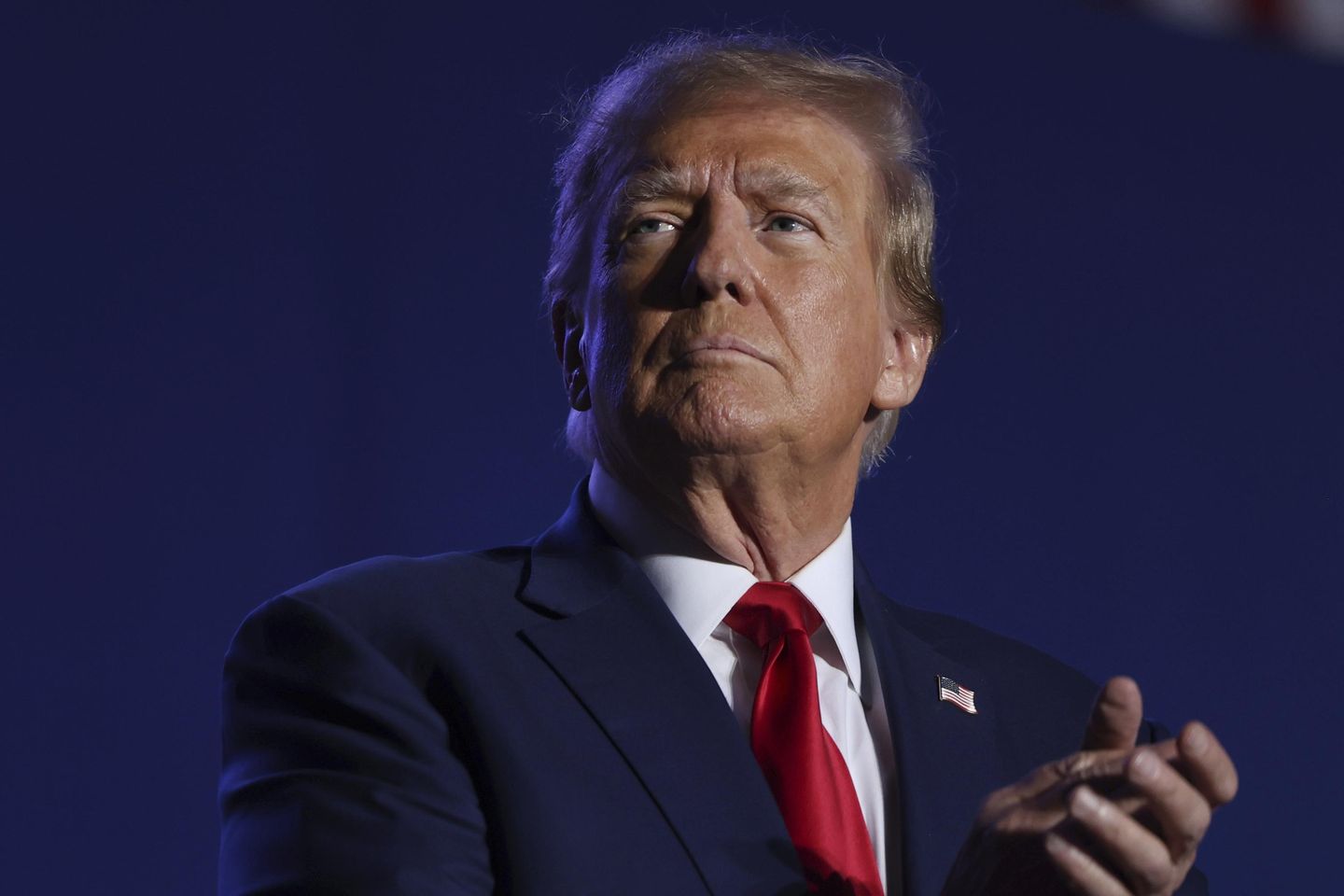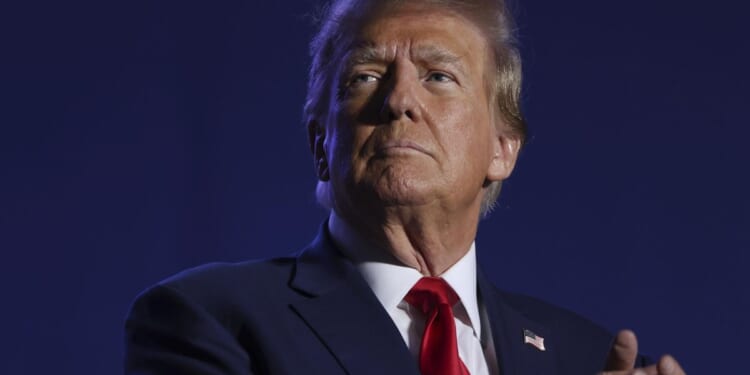
Lawyers have been arguing over whether Donald Trump should be on the ballot this year — and now they’re arguing over who should get to argue about it before the Supreme Court when the justices hear the case next week.
The lawyers for Colorado’s secretary of state, who under state law would be the ones who actually remove Mr. Trump from state ballots, have asked to be allowed some time during oral arguments Feb. 8 to make their case for why he should be excluded.
But lawyers for Norma Anderson and other state voters who brought the initial lawsuit to oust Mr. Trump told the justices not to let the secretary of state’s team argue. They said they’ve got it covered, and there’s no need for the justices to cut into their allotted time and make them share it with the state.
Meanwhile, lawyer Seth Barrett Tillman, who is not associated with Mr. Trump, the Colorado voters or Colorado’s secretary of state, has asked the justices to give him some time next week to argue.
Mr. Tillman, a professor at Maynooth University School of Law and Criminology in Ireland, said he can help the court sort out whether the presidency is an “officer of the United States” — a key term used in the Constitution’s 14th Amendment, which is what Mr. Trump‘s opponents say bars him from the ballot.
The state voters said the court doesn’t need to hear Mr. Tillman, adding that he “merely duplicates arguments made by Trump.”
“This is not one of those rare cases where an amicus curiae [impartial adviser] brings an important perspective all parties have overlooked,” the state voters said through their lawyer, Jason Murray.
The case before the justices stems from the 14th Amendment’s insurrection clause, which bars certain officials who “engaged in insurrection or rebellion” against the government from holding future office. Colorado’s Supreme Court ruled that the provision applies to Mr. Trump and under state law he must be banned from the primary ballot next month.
The case has drawn intense interest from politicians and lawyers, with more than 75 friend-of-the-court briefs filed by Wednesday’s deadline for filing such briefs.
For the justices, who gets to argue a case in person is usually a matter of who is in the best position to present the legal questions the high court is trying to settle.
Mr. Trump‘s team of attorneys will have time, since they are appealing the Colorado Supreme Court ruling. Mr. Murray will have time as the lawyer for Ms. Anderson and the other voters.
Colorado Solicitor General Shannon Wells Stevenson, representing Secretary of State Jena Griswold, said she has interests different from those of the voters, though they both are trying to block Mr. Trump from the ballot. She said Mrs. Griswold needs to defend the operations of the state’s law on who can appear on the ballot.
However, Mr. Murray said the state played a passive role in the lower courts and can’t jump in now.
“Nothing in the secretary’s motion for argument time supports her taking a prominent role in this case now with more time than usually received by the federal government at argument, having largely chosen to stay silent below,” he said.
A ruling from the high court could come soon after oral arguments, given the time-sensitive nature of the dispute amid the primary schedule in several states.
A quick decision is not unprecedented. The high court was able to decide Bush v. Gore in 2000 in just days, issuing its opinion the day after oral arguments were held.
The insurrection clause reads: “No person shall be a Senator or Representative in Congress, or elector of President and Vice-President, or hold any office, civil or military, under the United States, or under any State, who, having previously taken an oath, as a member of Congress, or as an officer of the United States, or as a member of any State legislature, or as an executive or judicial officer of any State, to support the Constitution of the United States, shall have engaged in insurrection or rebellion against the same, or given aid or comfort to the enemies thereof.”
The provision was written into the 14th Amendment with the Civil War in mind, but the Colorado Supreme Court, in a 4-3 decision in December, ruled that it also applies to Mr. Trump.
The majority held that he was an officer of the U.S. subject to the provision, that he did engage in an insurrection with his behavior surrounding the 2020 election, that his behavior was not protected by the First Amendment, that states can act on their own to kick people off their ballots without needing Congress to act first and that the state doesn’t have to wait for a criminal conviction to do so.
In order to prevail, Mr. Trump has to win just one of those issues.
The state court justices acknowledged they were breaking new legal ground. Their ruling was the first major ruling on the question to go against Mr. Trump.
Maine’s Democratic secretary of state, Shenna Bellows, also tried to remove the former president from ballots, using the same legal justification. The move was put on hold by a state court, and Maine’s top court said it would wait for the Supreme Court‘s decision in the Colorado case before hearing Ms. Bellows’ appeal.












